

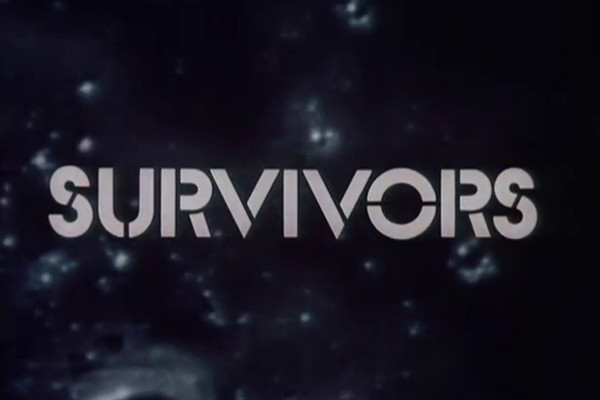
With only 1 in every 5000 people living through the viral outbreak, the series focusses on three survivors: Abby Grant (Carolyn Seymour), Greg Preston (Ian McCulloch) and Jenny Richards (Lucy Fleming) as they attempt to find others and adjust to life in the new world. The entire boxset of Survivors can be ordered from Amazon. In the meantime, please join me in ranking the 13 episodes of the first series from worst to best...
Spoiler Warning: Although spoilers have been avoided as much as possible, some significant plot elements are inevitably discussed...
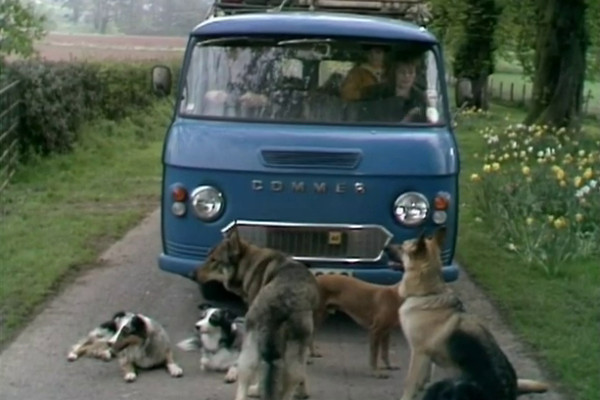
Survivors was made in the 1970s on a BBC budget, and so there's plenty of artefacts of the time that need to be overlooked, even if you're used to 70s television. Other 1970s BBC SF can get by because it's more fantastical... while Blake's 7, for example, was loaded with slow fighting and dicey realisation, it took place in a more operatic world, so such things didn't have as much of an detrimental impact.
Survivors, on the other hand, requires a greater suspension of disbelief, given that it's supposed to exist in a grittier, more realistic setting. It's this element that makes this particular episode appear in clip shows that want to affectionately mock it, given that it casts the most docile, well-groomed dogs as a savage wild pack. Director Pennant Roberts expressed his disappointment with the realisation of the "dog pack" in a BBC4 documentary The Cult of..., in 2007: "I don't think that was a great success."
Perhaps one improvement that begins here is that the series moves entirely to video tape. While the practise of recording studio on video and outside broadcast on film was something that charmingly extended way into the mid 1980s for Doctor Who, it's more a distraction in the documentary-style world of the Survivors. The decision to go all film would have been better, but a consistent look is welcomed.
While such things don't make or break an episode, Starvation has a slightly meandering, unfocused narrative that, while it sets up events for future episodes, is the least effective instalment in and of itself.
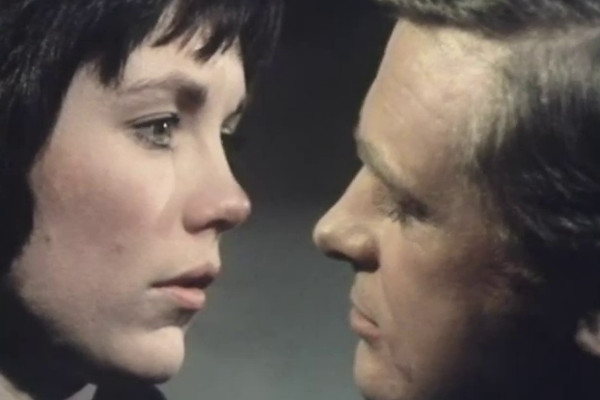
Jack Ronder wrote four episodes for this first series, with Corn Dolly the first of his output (followed by Gone to the Angels, Starvation and Revenge). His plotting can tend to be looser than creator Terry Nation's, which allows, at least in theory, for more character exploration and naturally-flowing plots. And at the heart of Corn Dolly is actually a really good episode that explores the need for procreation in the Survivors universe, both inside the main group and outside of it.
This is the story where not only do the group meet a cult that is being impregnated by their leader, but Greg and Jenny finally get together. It's all very chaste and hidden, with just a rather placid kiss, but then this was the 1970s. Sadly, what really lets Corn Dolly down and places it far lower in this ranking than it perhaps deserves is simply the realisation of it. While terrible actors existed before and certainly existed since, the 1970s was a prime joy of "anyone can have a go" acting circles.
Fans of 1970s cult television (which is probably a high demographic of this site) will be familiar with the delights of Rick James, three quarters of the kids from The Enchanted Castle or Kenny from The Tomorrow People, all examples of "how did they ever get cast?" performances. And such things are said with pure affection, as there's really nothing more enchanting than watching someone defying all expectations of the art of acting on screen for our entertainment.
Sadly, because Survivors is a very "serious" and "gritty" show, as with realistic wild dogs, it also demands more convincing performances in order to really "take". It's fine having Rick James stinking the place out opposite Jon Pertwee in a fantastical Doctor Who story, but less fine when actors of his calibre take part in a show that's for a purely adult audience. While there's perhaps no one in Survivors that can compete with the beauty of Rick or Kenny, acting in the programme isn't always its highest point.
With the 13 episodes recorded in sequence, the cast notably warm into their characters more as the series goes on, and many of the guest roles are inhabited by cast members not quite delivering at a high level. This is particularly notable here with Keith Jayne (later Stig of the Dump) who, aged just 14, is called upon to deliver a range of emotion and depth that is, sadly, beyond him. A scene where he bursts into tears is, bless him, quite excruciating, and it's this gulf between intent and delivery that permeates the entire episode, dragging down something quite inspired into something of a mess.
Incidentally, with its themes of (enforced) self sufficiency, there's a kind of unwritten rule that every Survivors review has to compare it to a certain BBC sitcom starring Richard Briers and Felicity Kendall that began just 12 days before Survivors and ended, barring a Christmas special, just 17 days before it. Attempts to avoid mentioning these two concurrent shows will be avoided here, except to mention that this episode contains the line "I was devoted to The Good Life."
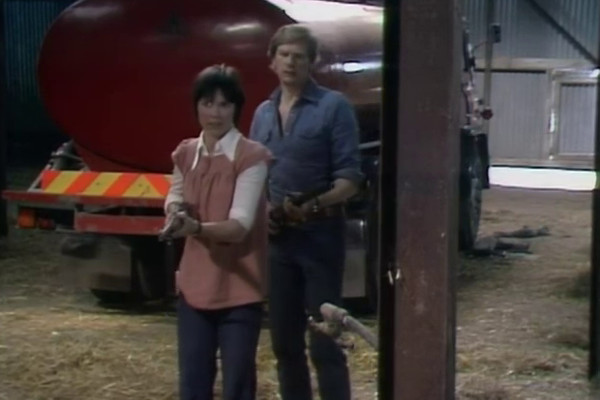
Survivors was remade/reimagined by the BBC in 2008, in a series that perhaps didn't have the same intrinsic quality of this version of the show, but was pretty watchable in its own right.
Both series show signs of the age they were made in. The "reimagining" has a cast that are more contrivedly aesthetic in order to appeal to a modern audience brought up on the greater sexualisation of its stars. That's not to say that the cast of the original Survivors aren't good-looking people, far from it, but the male pattern baldness of its main male lead would seem to be anethema in this century. It perhaps sums it all up that the character of Tom Price, played by Talfryn Thomas in this version, was recast as Max Beesley in the remake.
The Survivors of 1975 lacked the class range and ethnic diversity of the new version, managing to go this entire first series featuring just one non-white character. But most significant is that the programme has a reputation for being about the middle classes, which isn't quite deserved. Certainly, lead character Abby Grant lived in a country house with Peter Bowles and her own maid, but this doesn't apply to all characters.
The vast majority of actors on BBC television in the mid 1970s were not only white, but spoke with an RP accent. This explains why the hardened, working class criminals of Blake's 7 sound anything but, and also why even many of the "common" characters in Survivors are so lacking in regional accents. While there are some working class villains, there are also middle class ones, and this does mean that the programme's occasional commentaries on the class structure in a post-pandemic world are lost where, to the untrained eye (or ear) they're nearly all posh. But it's a situation that needs to the viewer to "buy into it", in much the same way that Raumpatrouille's starship crew are supposed to be multi-national and multi-racial, despite all being played by white Germans out of necessity.
So if we accept that it actually isn't a series about middle class people, just portrayed by them, then one criticism that can be levelled at this first series is that it does contain an inordinate amount of "men with guns" episodes. This doesn't particularly detract, depending on how much you like such a thing, as there's perhaps little more scary than living in a world with no security, surrounded by armed men with no morality.
However, here it does feel laboured, with more than a few unlikely plot twists. The group have previously shown ridiculously high levels of suspicion and paranoia against any visitors, but the moment a man with a rifle walks into camp, they accept him readily. There are other issues with logic, such as how Greg is able to hold off three armed men with a shotgun, when they must know he needs to reload it. But such distortions of logic can detract from the fact that is a pretty fun episode, and certainly not a single Survivors episode from this series is bad.
This said, the climax resting on a "three men go out of control down a hill" climax did bring to mind another BBC series that was airing around the same time...
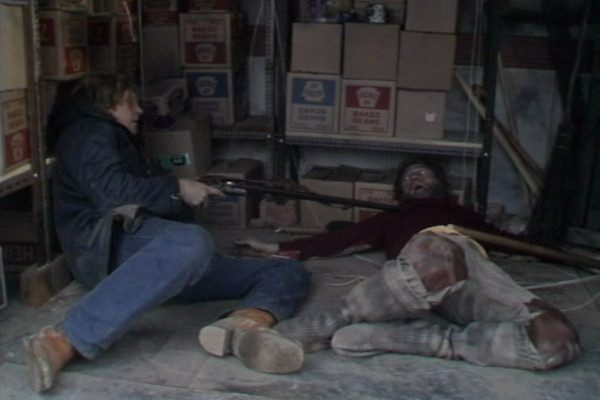
One slight issue with this run of Survivors is that many of the characters, Jenny often included, get pushed to the background or have their characters blunted in order to fit around the dynamic of "The Greg and Abby Show". Spoil of War has the difficult task of introducing three new regulars, and while Chris Tranchell's Paul and Eileen Helsby's Charmian are relatively benign presences, Michael Gover's pompous and entitled Arthur Russell has a lot more edge.
Sadly, it's only a couple of episodes before Russell has turned into a likeable and welcome member of the group, a positive and really quite endearing character. In fairness, it does take episode nine's party to really bring Arthur Russell out of his privileged shell, and the programme is set over several months; although the timeline isn't explicit, series one definitely seems to take place over at least a year.
The episode was written by Clive Brooks, who wrote professionally under the name "Clive Exton", and wrote for Survivors under the pseudonym "M.K. Jeeves". He went on to write one more, the following week's excellent Law and Order. Spoil of War is the lesser of the two, though is still strong, and contains prescient dialogue like "You're talking as if everything's gonna get back to what you call 'normal' by Christmas."
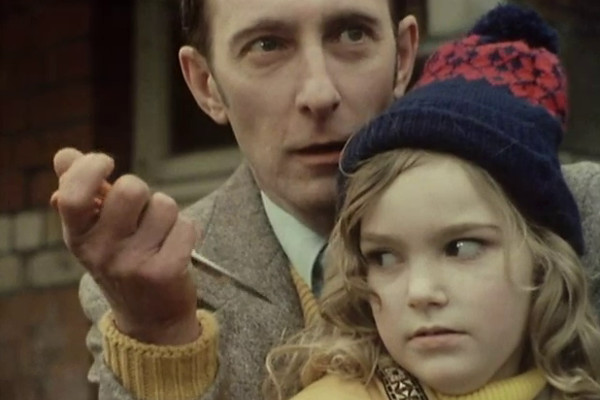
Gone To The Angels introduces two child regulars, in the form of writer Jack Ronder's daughter Tanya, and Producer Terence Dudley's son, Stephen. Dudley had also dragged family members into Doomwatch, and, while the kids are reasonable in small doses, they lack the experience needed to carry off longer scenes, as here.
Tanya Ronder is more confident and went on to have an acting career, though is far too young here to be able to flesh out her character. Far less impressive is, sadly, Stephen, a child who, while sometimes charming, does have the worrying tendency to glance into the camera at least once per episode. In an interview with Kevin Marshall, author of The Making of Terry Nation's Survivors, Ronder's mother, Anne Christie, noted that "we all felt rather sorry for Stephen. He wasn't happy doing it at all and often seemed quite strained."
When discussing the thespic qualities of child actors, the Anorak Zone always tries to be reasonably discreet out of respect (and also, perhaps, on the off chance that the child has grown up to be a tough guy, bumps into me and gives me a good kicking). However, Carolyn Seymour, also talking to Mitchell, was blunt about Stephen's limitations, stating that he "just couldn't act. He was treated cruelly. The whole thing was cruel. We all had enormous compassion for him but whenever he was in a scene it would take twice as long to do as any others because, for example, he used to get very scared and tended to cry a lot."
The episode acts as an open condemnation of the pointlessness of religion in the face of genuine peril, something that would still have been quite daring in 1975. There's also the revelation that the two young kids, clearly suffering from PTSD, have no real emotional attachment to death. Unfortunately they aren't quite able to fully convey this, and their stiff delivery contrasts badly with Peter Miles' somewhat OTT turn as the treacherous Lincoln. As with Corn Dolly, this is a strong episode at heart that struggles with a below-par execution.
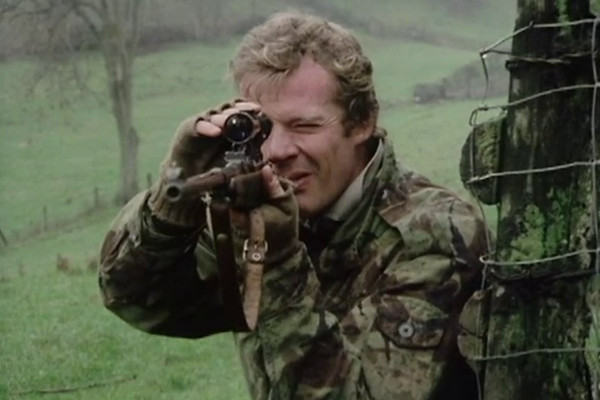
Garland's War introduces the character of aristocrat-cum-sniper Jimmy Garland, played by Richard Heffer. Embroiled in a dispute to get back control over his own land, he becomes attracted to Abby, and they eventually reconcile at the end of the year's run of episodes.
While this Abby-centred episode is somewhat basic and has some "twists" that you'll probably see coming a mile away, there are some nice bits of philosophical dialogue for Garland, as he reflects upon reality in a post-pandemic world: "The limit of pain and suffering is what one person endures. Now that suffering isn't magnified simply because millions are infected with it." Later he gets the even blunter: "you can't mourn for a whole world."
As the last episode to be made in the film/video mix, then there the limitations of such a device are shown heavily here, as "exteriors" shot in the studio and mixed in with the real location footage are somewhat jarring. As referenced, the best decision for a series of this nature would have been to go exclusively to film, but instead the faster timescale of using all-video was used.
Terry Nation wrote a book based on the series, published in 1976. A short novel, just under 73,000 words (or 72,487 if you really want to be precise) it was used as the basis of the 2008 "reimagining" of the series, probably due to legal complications that would arise if they stated it was based on the original programme.
Not necessarily an essential purchase (unless you want to read Terry Nation's continual descriptions of the various breasts of the Survivors, or a scene where Abby masturbates) it does, however, tie all of his plots into a more coherent, singular story, and has a very different end direction. The reason for its mention under this entry is that events are changed - Abby returns to find Garland some time later, and, unlike in the TV version, discovers that he was killed.
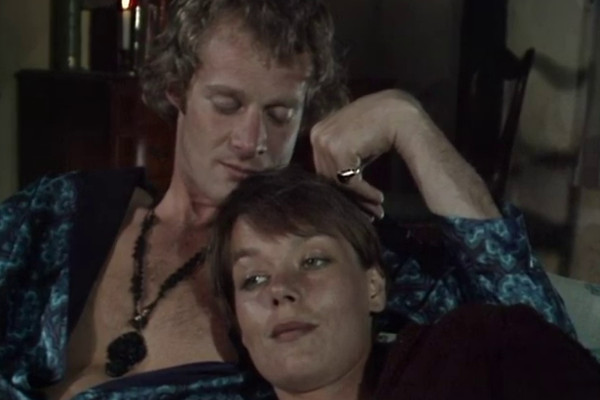
The first series of Survivors was not an especially comfortable environment, with multiple behind-the-scenes clashes between various personnel and producer Terrence Dudley. Dudley's son, Stephen, admits that his father was a perfectionist and not the easiest man to work with, and by the end of the first series, Survivors creator Terry Nation had tired of all the battles and decided to walk away.
Several cast members and their characters were also removed from the series before it returned in March 1976, including the characters of Vic Thatcher, Emma Cohen and Charmian Wentworth. Most crucially of all, though, was Abby Grant, the programme's ostensible lead character. In The Cult Of... documentary, Carolyn Seymour admits she had difficulties with Dudley as producer, and felt that her hiring as a "strong woman" may have also been her downfall, as Dudley felt it hard to cope with such a strong personality in the cast.
However, Seymour is also open about her own failings, admitting that she could be abrasive, and even more so if she'd "had a drink or two. [...] I had a lot of trouble with alcohol. And I was in fact an alcoholic. And I think he was terrified that I was going to become a liability. So in one respect he was absolutely right to fire me. But I may well have appreciated the opportunity to do something about it."
A Beginning, somewhat ironically titled, marks the last time Nation and Seymour would be involved with the programme. As always, Nation is a good "ideas man", able to know the basics of drama without necessarily being strong with adding nuance, flow and character - very much a "nuts and bolts" man as a writer, where simple action and clumps of exposition propel watchable narratives forward.
This does reach something of a low point here, where the group have taken to in-fighting, and, as they're all sick of hearing about the work and responsibilities the others take on, it sees a collection of scenes where characters talk to each other about how exhausted they are with their allotted chores, purely so others can tell them to shut up. As a dramatic incident, it's less "gritty adult thriller" and more The Sooty Show, but it gets by.
Things end well for Abby, as not only does she, to put it bluntly, get laid, but she also learns that her long-missing son is alive and well. This last point in particular highlights where the series would go. Nation was frank about how he felt Dudley didn't really "get" the core survival ethos of the series, and wanted a society that was less in disarray, a somewhat "safer" narrative.
Having Abby get a happy ending is kind of neat, but doesn't sit quite right for a series this dark; a more fitting ending would perhaps have been that, as the group found out about Abby's son when she wasn't around, that she never got to learn he was still alive when she decided to leave. If such a decision would have seemed too bleak, then it's nothing compared to Nation's novel, which ends with an Abby-Peter reunion that is even more desolate...